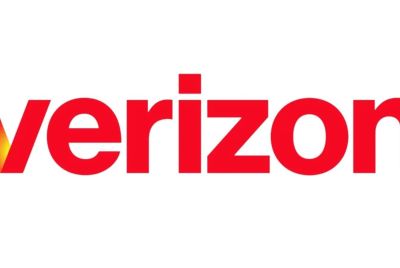Here's How Much Net Worth You Need To Join The Top 2% Of America's Wealthiest
The wealthy allocate up to 32% of their wealth to investments in real estate

Financial success is often viewed as a critical indicator of achievement, and understanding wealth benchmarks is a crucial tool for gaining valuable insights into economic stratification. Wondering how much net worth it takes to ascend into the upper echelons of America's wealthiest is a very common thought.
However, figuring out where you stand on the wealth spectrum can be perplexing since most people in the US don't discuss money matters despite admitting it is the gateway to financial solutions. In fact, recently published research from financial advisory firm Empower revealed that 62% of Americans don't talk about money, while 35% grew up learning never to ask someone about their income. While many believe it is not polite to discuss money, some were raised without being taught how to budget or save for retirement.
"It's clear that 'money talks' matter...Conversation is a currency on the pathway to financial security, and open discussions about money can have a truly transformative effect on society," said Empower Personal Wealth president Carol Waddell. "In these challenging times, staying tight-lipped about money is something people can no longer afford."
Many people seek discussions about their money mistakes, how to budget efficiently, and how to pay for big expenses. Despite growing awareness about the financial and emotional impact of trauma related to money, most shy away from discussing their assets and investments.
Joining the top 2% of the nation's most affluent individuals is a milestone many aspire to reach, yet only some truly understand what it entails. Here, we delve into the specifics of the net worth required to be part of this exclusive group, offering a glimpse into the financial landscapes of America's elite - and giving you a realistic idea of how you can financially improve your life and be part of it.
How Much Money Do You Need To Be Among The Elites?
While the definition of rich varies widely, feeling successful is often linked to achieving the American Dream and having the financial freedom to afford purchases without looking at the price tag.
According to the net worth percentile calculator from The Kickass Entrepreneur, you will need $2.7 million to enter the top 2% of America's net worth by 2025. Meanwhile, last year, a Schwab Modern Wealth Survey found that the average net worth Americans think they need to feel wealthy was $2.2 million. The analysis revealed that to most people, wealth meant enjoying experience, being in good health, and not having to stress over money.
However, the wealth distribution gap across the US is significantly large. The top 1% of the wealthiest is estimated to have a net worth of $11.6 million by 2025, while you need $1.17 million to be in the top 5% of the wealthiest. According to the October 2023 Federal Reserve Board Survey of Consumer Finance published every three years, the average net worth of all families was $1.06 million in 2022, while the median was $192,900.
Top Money Habits Of Most Wealthy People
The wealthy often diversify their money across asset classes to safeguard their net worth against market upheavals and amass gains during bullish cycles. But what really helped them amass such wealth? Here are some gems to consider:
Diversification With A Focus On Real Estate
According to a Benzinga report, the wealthy are particularly interested in real estate, allocating up to 32% of their wealth to the asset class. This indicates a clear preference for tangible assets over stock and bonds.
The wealthy's long-standing trend of investing in real estate reflects their trust in the property as a reliable source of income and capital appreciation. Some also invest in private equity and even art and antiques. However, the ultimate goal is to balance high-growth opportunities with stability through an asset mix that aligns with your investment goals and risk appetite. Younger Americans, especially GenZ, are driving the shift towards investing in more alternative assets than traditional stocks, partly inspired by pursuing higher returns in a dynamic economy.
Taking Advantage Of All Available Employer Benefits
Harrison Wallace Financial Group CEO and certified financial planner Faron Daugs said in an interview with CNBC Select that individuals should thoroughly check employer benefits, which are much more than retirement plans.
Daugs' clients often leverage employer benefits to max out on 401(k) or IRA employer matching limits, enroll in employer life insurance group plans or health savings accounts for lower prices, and allocate a portion of pay towards employee stock purchase plans to buy company shares at discounted prices. However, Daugs said to buy "your company" stock only if you feel good about it.
Avoiding High Debt Levels
Daugs highlighted that his clients proactively work to reduce and eliminate all debt. The CFA explained that if you are trying to grow your net worth, "you cannot waste money on paying interest on consumer credit, such as credit cards and even car loans."
High-interest credit cards can stretch a small outstanding payment into a years-long repayment journey, especially if you keep paying the monthly minimums.
Managing high debt levels or creating a repayment plan can become much easier under the guidance of a fiduciary financial advisor. Advisors following fiduciary standards are legally obliged to work in your best interests.
Disclaimer: Our digital media content is for informational purposes only and not investment advice. Please conduct your own analysis or seek professional advice before investing. Remember, investments are subject to market risks and past performance doesn't indicate future returns.
© Copyright IBTimes 2025. All rights reserved.






















